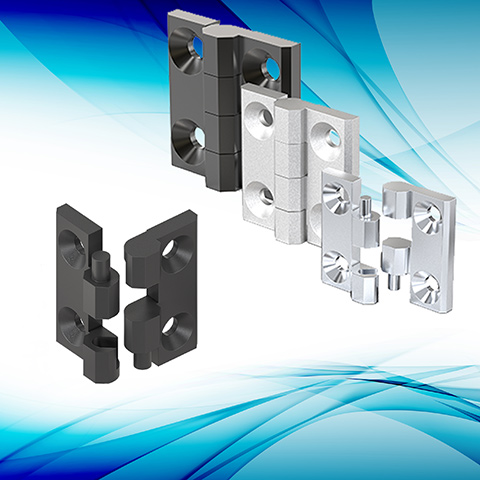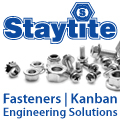
Posted to News on 27th Jan 2023, 15:30
180deg screw-on hinge without hinge pin reduces assembly time

Designed to provide the same performance as the existing Emka 1056 hinge but at reduced cost and enabling lift off door operation, a new screw-on hinge suits flush mounted doors and may be interchanged with the existing 1056 design with no need to modify drawings or production.
The screw-on hinge does not need the usual hinge pin by virtue of its design which incorporates the pin into the two separate leaves of the hinge in such a way that they can be inserted at the 270° position then become securely interlocked when the hinge is closed to 180°. This feature also enables simple door removal when required.
On the one hand, Emka says this results in significant cost advantages compared to conventional screw-on hinges with hinge pins. On the other hand, the design enables tool-free assembly within a few seconds. To do this, the two identical hinge halves are first inserted into each other in the 270° position. The fitter then brings the assembled hinge halves into the intended 180° position. Both halves are already firmly connected to each other, even without a hinge pin. In the 180° position, the hinge is then fixed to the intended application area with countersunk screws.
Depending on the customer’s requirements, the hinge may be supplied already pre-assembled or as individual hinge halves for self-assembly. The hinge with its design-protected hinge halves is available in three different sizes: 60 x 60 mm (M8), 50 x 50 mm (M6) and 40 x 40 mm (M5). Customers can also choose from four different materials and several surfaces: polyamide (glass-fibre reinforced plastic), zinc die-cast (black powder-coated or chrome-plated), aluminium (die-cast; black powder-coated or anthracite anodised) and stainless steel (investment casting; ground or industrially polished).
While polyamide, the lightest material available, impresses with its high elasticity, tensile strength, rigidity and hardness, zinc die-casting plays to its strengths with high strength and durability (fatigue resistance). The aluminium hinge, on the other hand, scores with its low weight and resistance to corrosion and weathering. The stainless steel version also offers high resistance to corrosion and weathering plus rugged high performance, which also enables it to be used even with thin enclosure walls.





